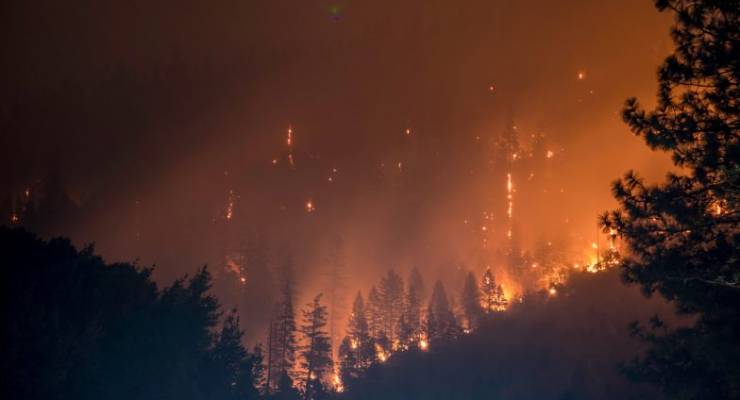
Journalism student and NGO worker Jordyn Beazley is keeping a COVID diary. Here is her first instalment.
Sunday
On a brisk walk alongside Melbourne’s Yarra River with a friend — both of us edged a bit closer than the carefully spaced distance of weeks past — my phone pinged with the news that Western Australia is starting to ease lockdown restrictions.
We are both 26 and university students, so four weeks ago when the restrictions first began, I thought this news would trigger a bucket-type list of all the things we plan to do post-pandemic.
But instead, our conversation turned to all the things we will miss once lockdown ends: an extra 1.5 hours in the day instead of a commute. Exercising more. A break from constant social obligations. More time to juggle the demands of both work and university. The environment having a chance to breath. My partner and friends who’ve lost their jobs being paid above the poverty line and without the “dole bludger” label.
My friend said she is not ready to return to normal. She is the fifth friend to say this. We are fortunate, of course, to say that. But it already feels like the lessons from this slow-paced rhythm will soon be gone.
Monday
For a story part of my journalism degree, I followed up an interview with a 22-year-old farmer to ask his thoughts on the effects the recession will have on young people. His first reaction was to say young people are stronger than what people think. “We are quite innovative, so I think we are going to work with whatever is thrown at us.”
But he ended with the thought that he feels ignorant, adding the cliché “ignorance is bliss”.
After I ended the Zoom call, I realised I feel ignorant too. I guess when you are younger than the 30 years of economic growth Australia has experienced it is difficult to find a frame of reference.
Tuesday
I draped a white sheet over the garage roller door to project a movie, made mulled wine and choc tops and moved the couch into the garage of my sharehouse to create a makeshift cinema. It was a surprise for my four housemates — an attempt to find some novelty in the lockdown mundanity of watching far too much TV.
I also did this to take my mind off the pacing rage I felt all day. This morning I read that 2020 will be the hottest year since records began, and my idealistic vision that the federal government would start listening to science and experts — as they have done during the pandemic — and take serious climate action evaporated.
The rage slowly built over last week after spending my days helping the development NGO where I work set up their response to Cyclone Harold in Vanuatu. Vanuatu is just one of the many hotspots set to suffer more from natural disasters in a warming planet.
This, after almost losing my family home to Australia’s black summer fires. Young people get it. Why doesn’t the government?
Wednesday
My weekly Zoom call with friends has a rule: no talk about the pandemic. But I break the code and bring up my talk with the farmer about the looming recession.
One friend said that she had not realised how long the pandemic would affect our economy. Another friend said she struggles to comprehend how it will affect her, pointing out she was 10 during the global financial crisis
I feel like young people are being blindsided by the policies that disadvantage us, and are too complacent to realise the need to speak up against inequities like the not-yet-implemented tax cuts that skew to high income earners, or negative gearing.
I often think about this in the frame of university fees, with the number of people with student loans above $50,000 increasing, and the threshold to begin paying it back lowered to $45,881 last year. Why didn’t we fight this?
I remember telling a friend at work that my HECS debt is likely to be $60,000. She almost choked on her lunch.
“Jesus, 10 years ago my Masters cost $8000!” she said.
Thursday
My mum called me, and we talked about my chat with friends the evening before. If she had a tacky tattoo across her arm of words to live by it would be “nothing comes easy in this life”, so her response is every generation faces its challenges.
She reminds me of the recycled family story that when my stepdad was in his late teens and doing his apprenticeship he’d cook all his food in one pot and eat in the dark so he could afford his power bills. She ends with: “if it gets that bad you could just move back home, that would be lovely!”
A quiet life in the country is starting to feel like a good idea.









John Bushell writes: ‘Why does our government listen to experts about the virus, but not climate?’
Maybe because the coronavirus cannot employ lobbyists nor donate to political parties.
We need another Gough….someone with ideas and imagination, not a manager nor a failed marketeer. Uni fees and HECs debts need to be abolished.
But universities also need to stop ‘training’ and start ‘educating’.
Why? Coz it might bite them on the arse whereas climate change is someone else’s problem.
More sponsored content! From a journalizm skool?
Seems to have been written using a by-the-numbers crib sheet, bland & insipid, it touches too many rite-on buttons, not to mention wholly lacking in credibility.
Because the virus is real and climate alarmism is not?
I am waiting for the pennies to drop for our young jobless…whose governors have knowingly decimated our jobs market…in favour of protecting their generous party donor, the gambling industry!
When pokies alone create only 1 to 3 new jobs for every $1 million spent…yet that same money would have yielded between 4 and 20 new jobs in other more productive industries…it will eventually sink in to our young, just how rabidly irresponsible their government leaders have been! So instead of having healthy careers for our young adults…too many will be scratching around job-seeking…for way too many years! Shame on Morrison now for not breaking the jobless cycle!